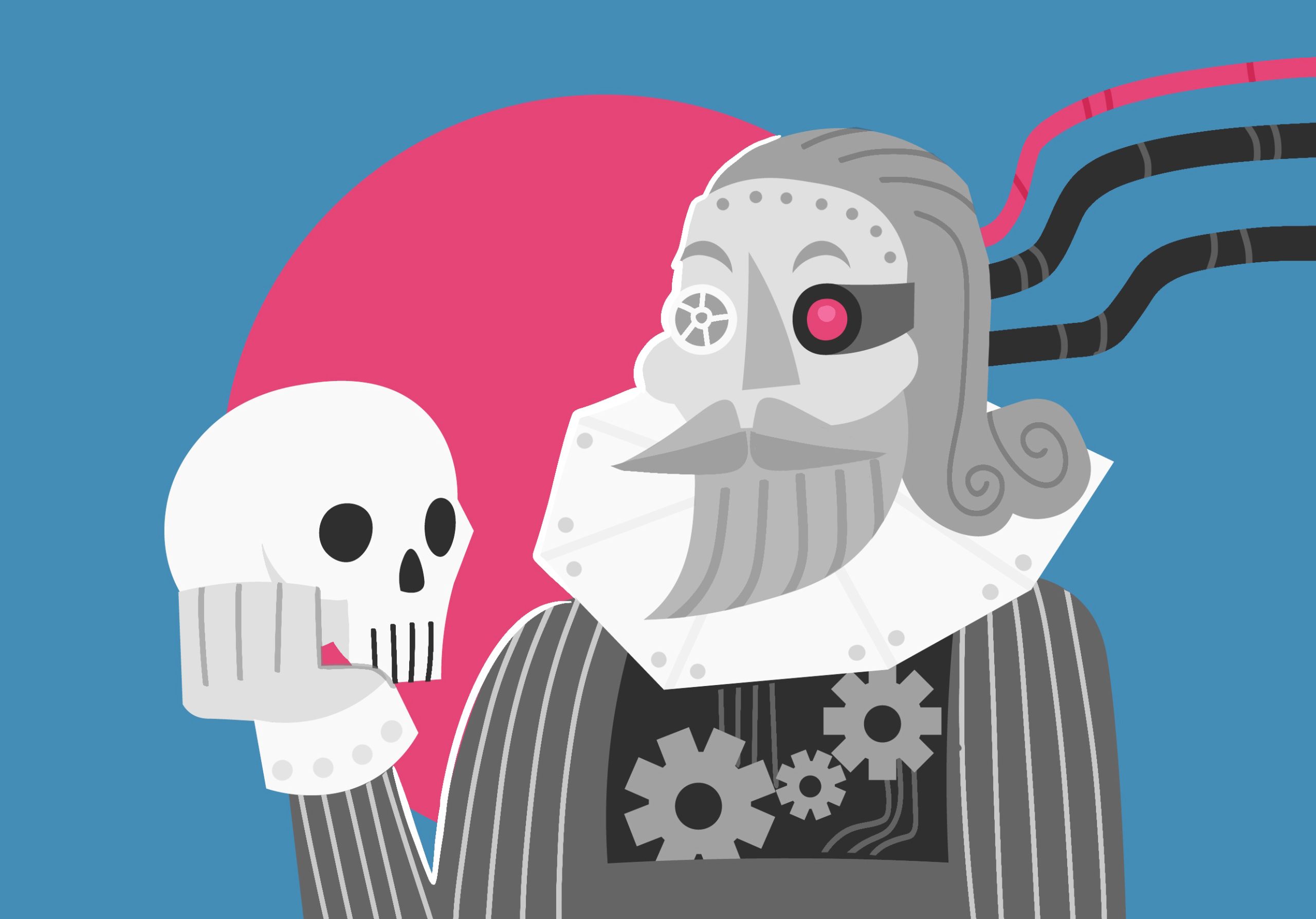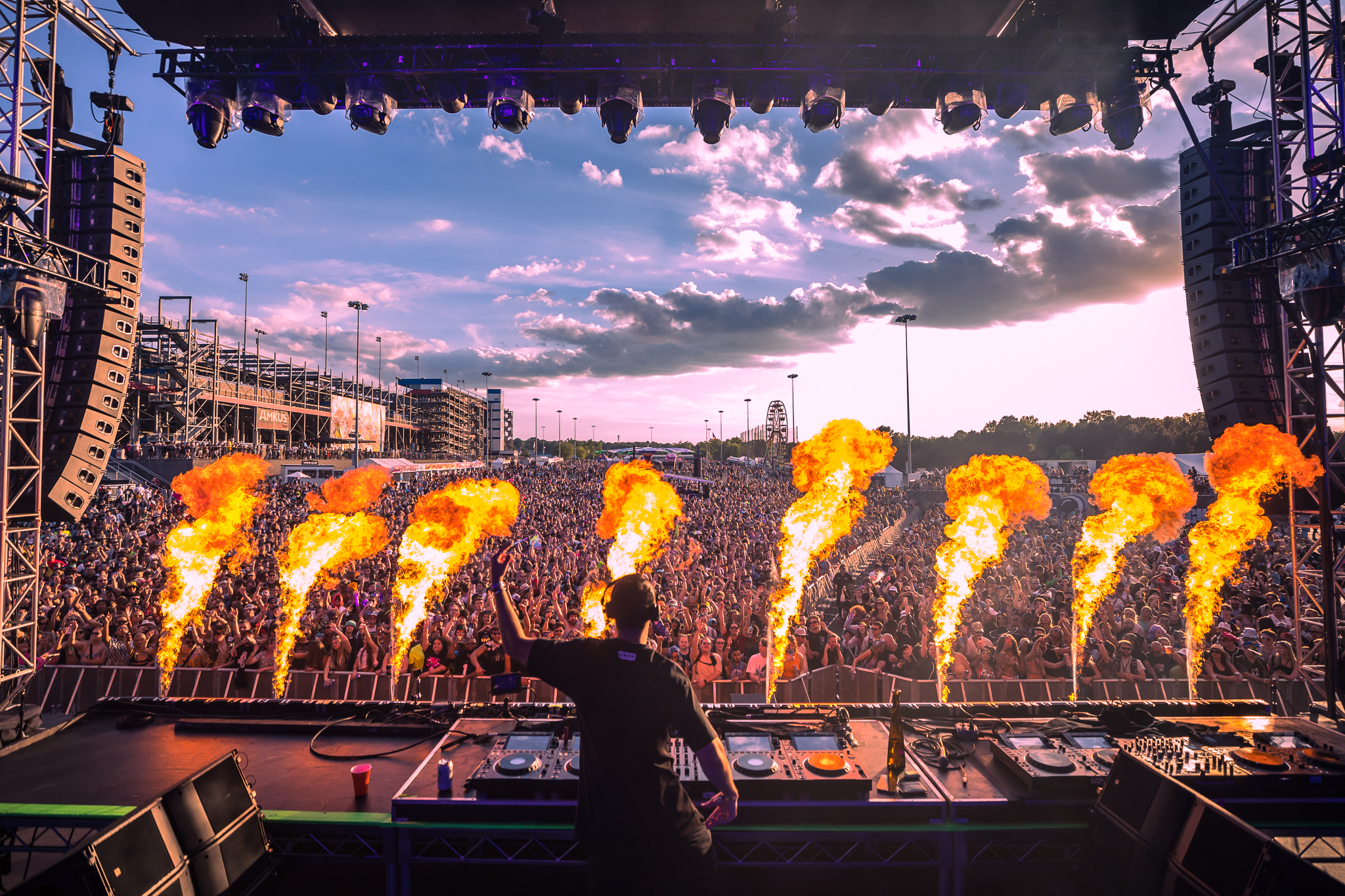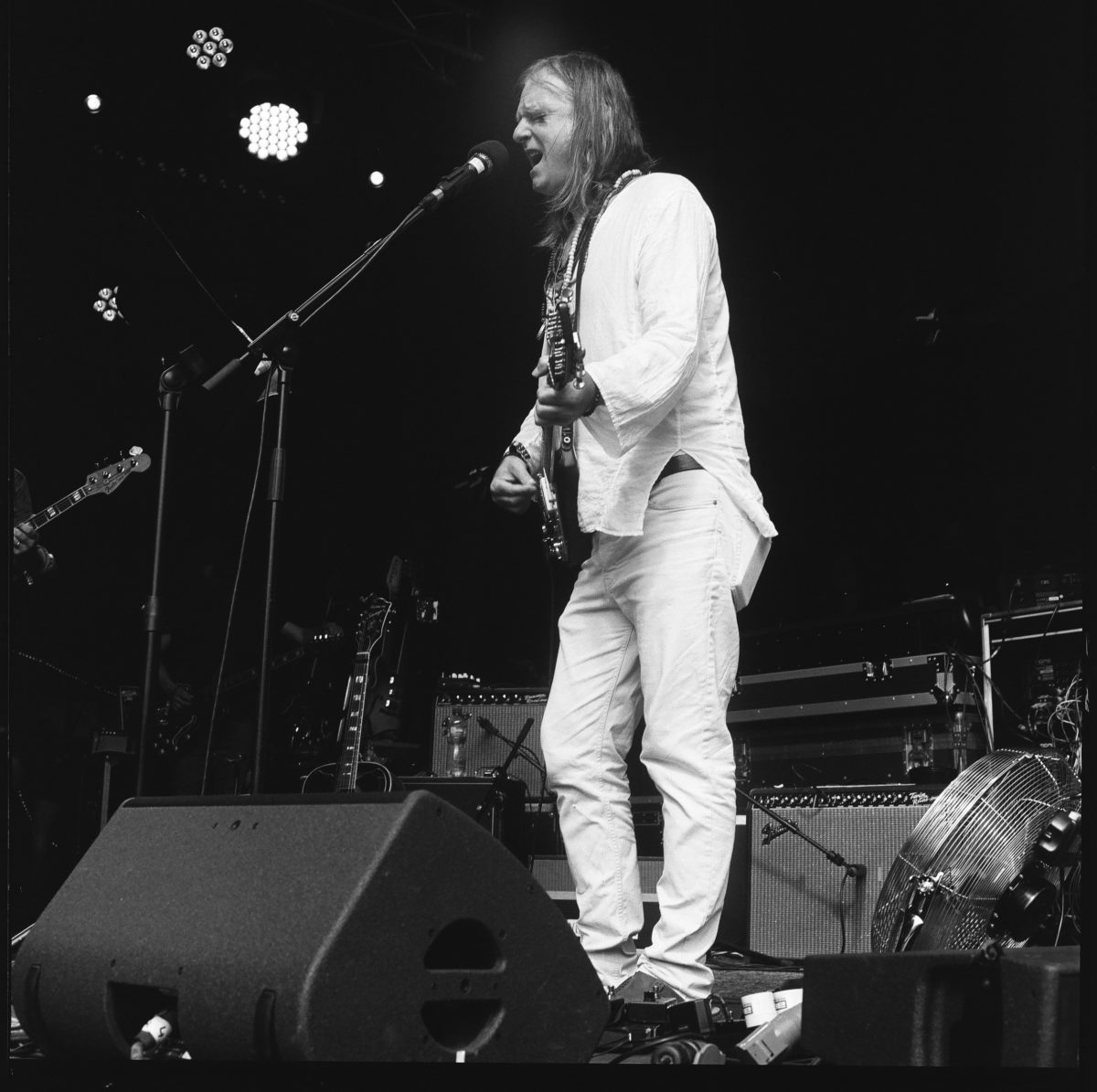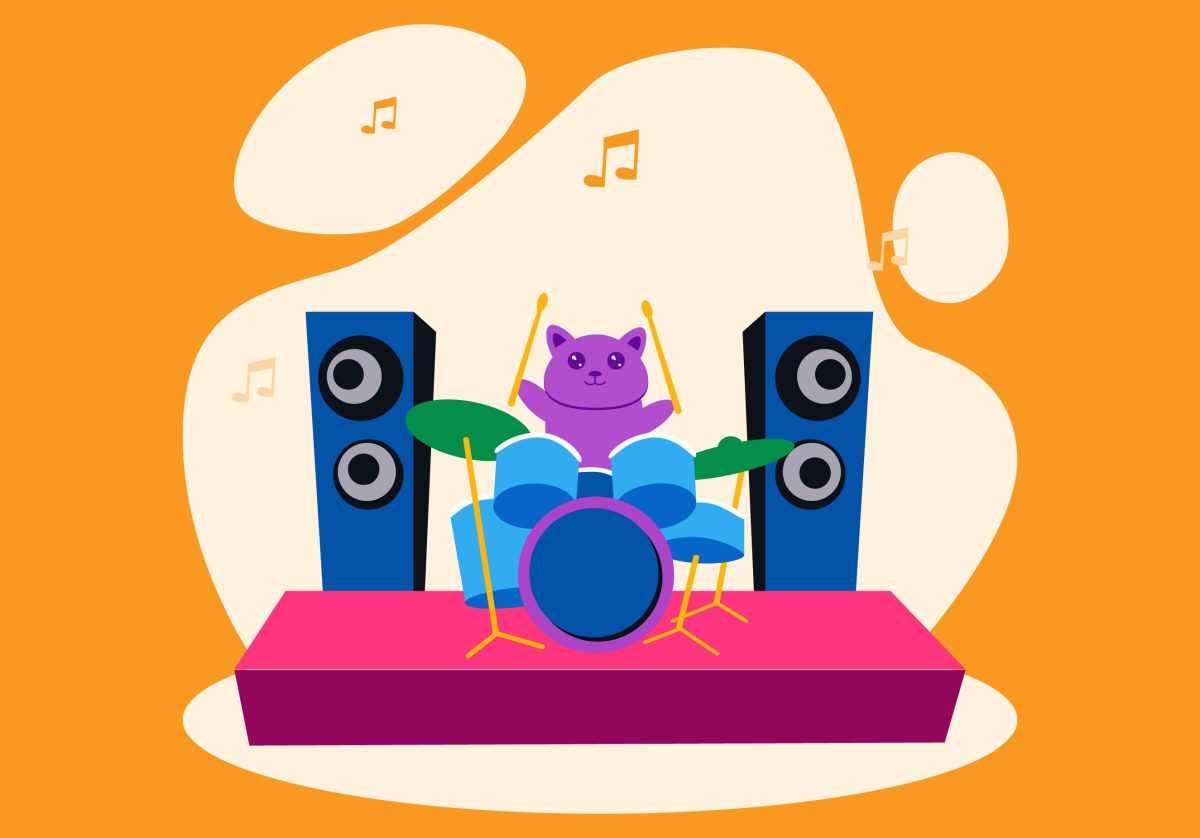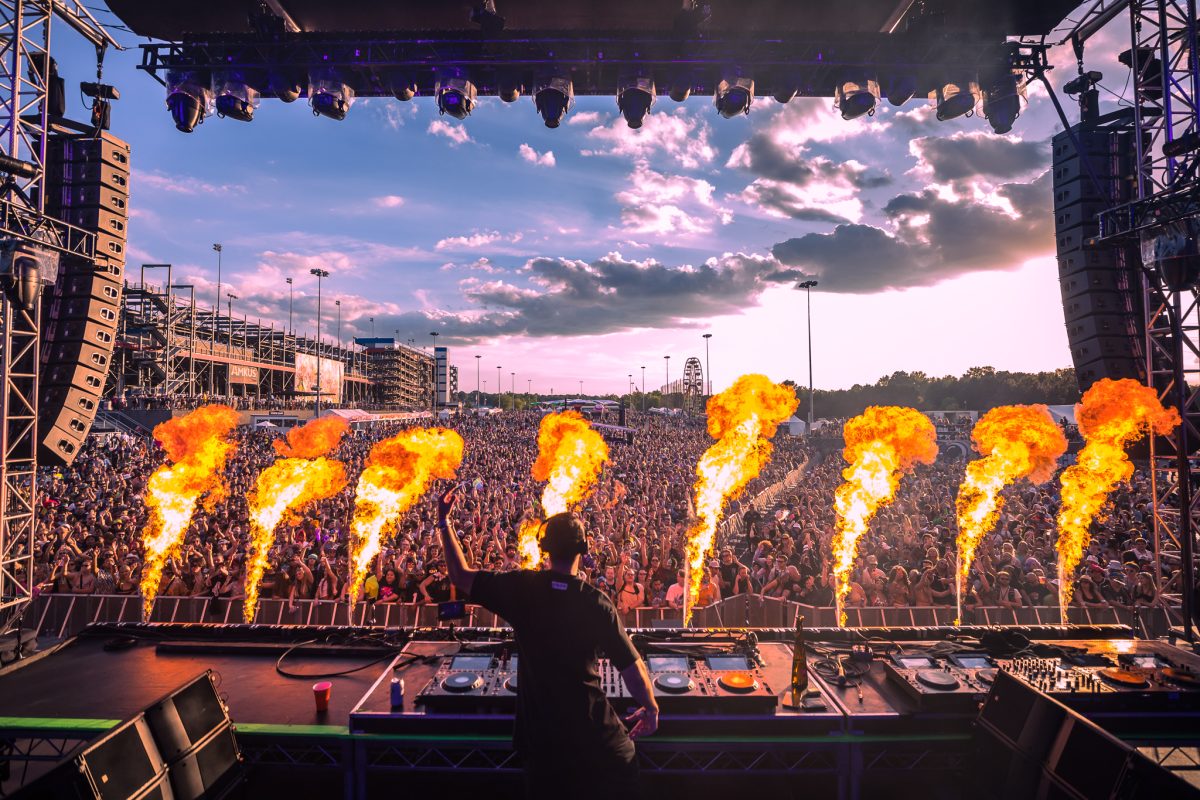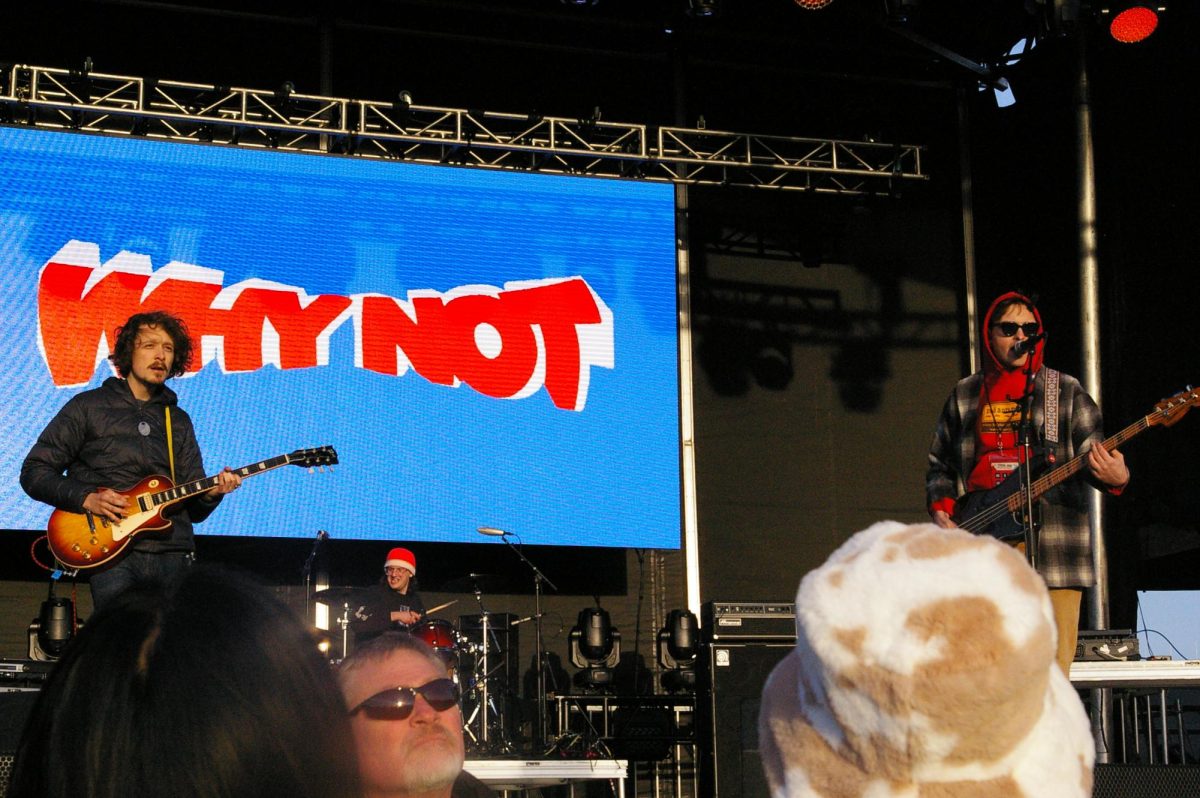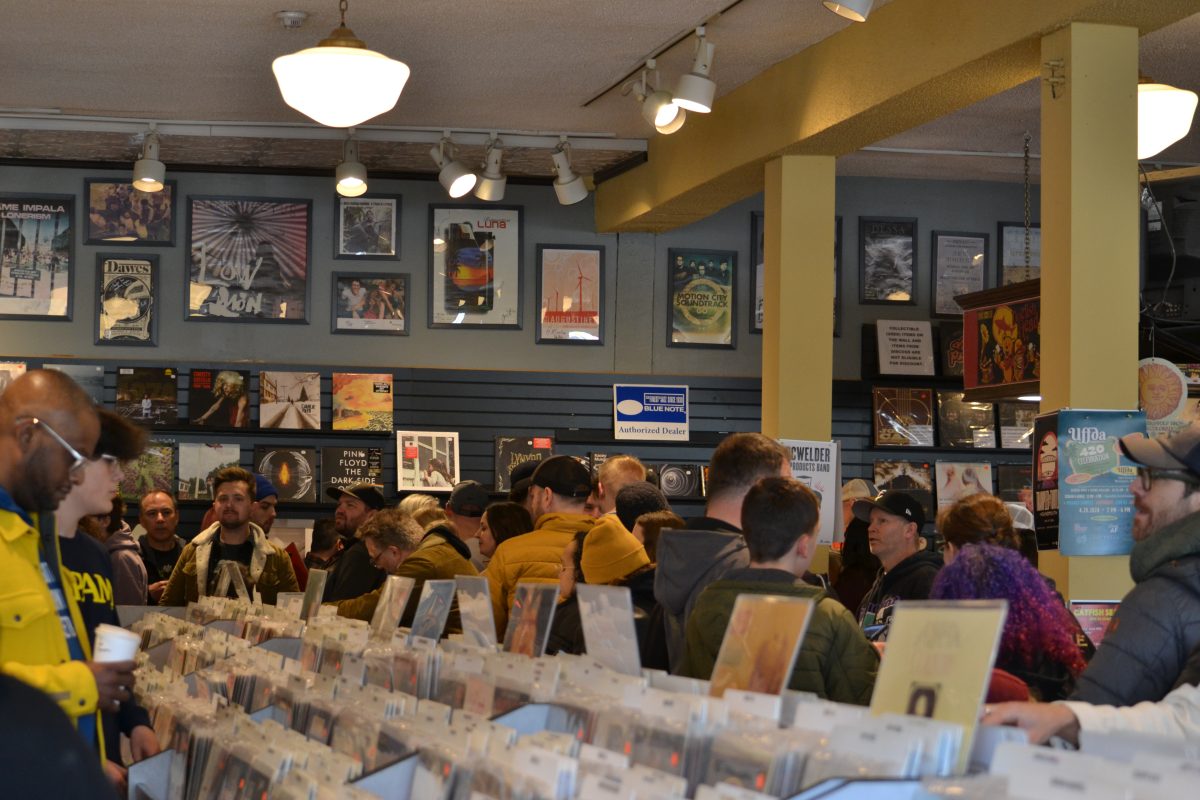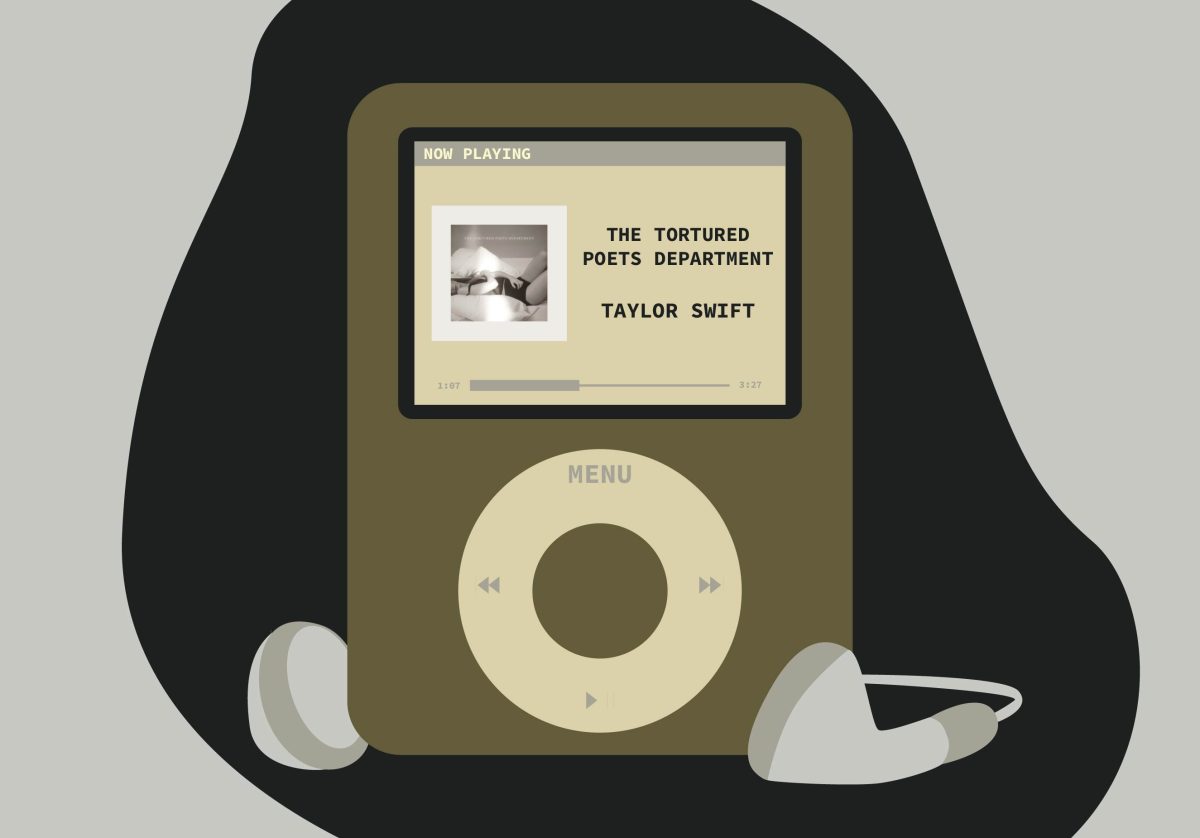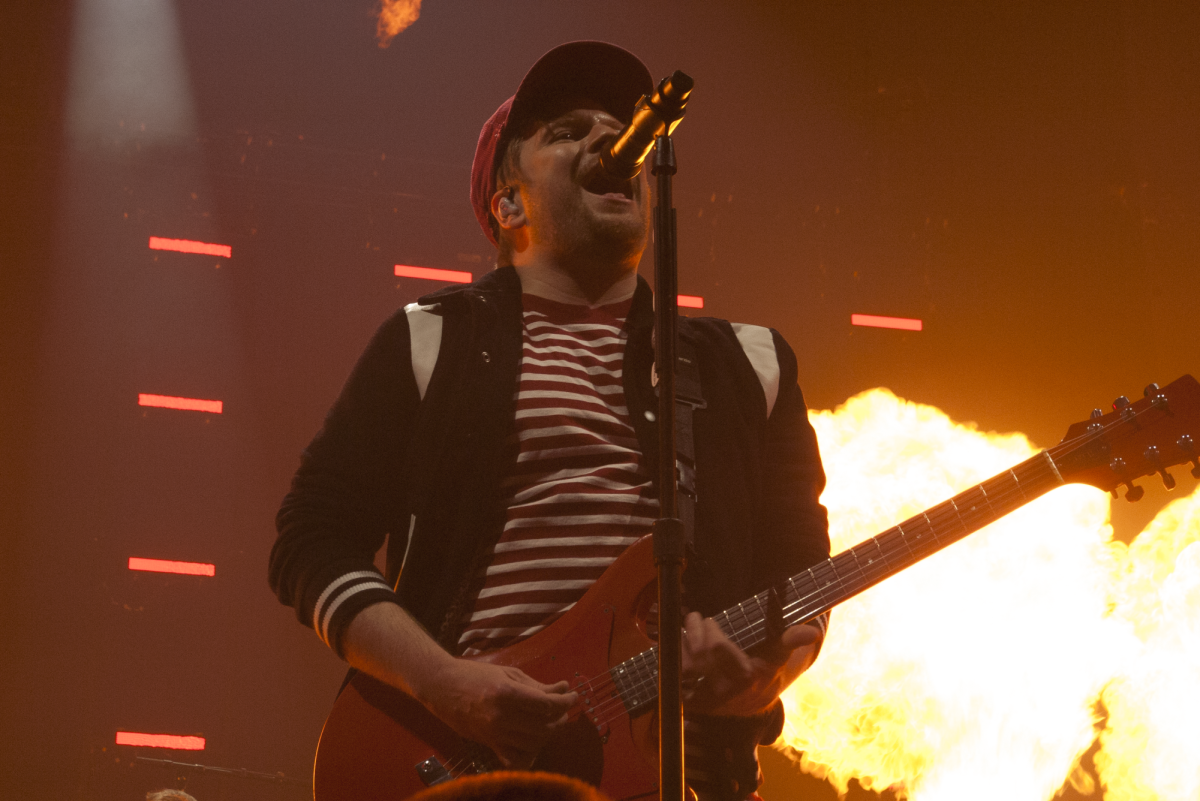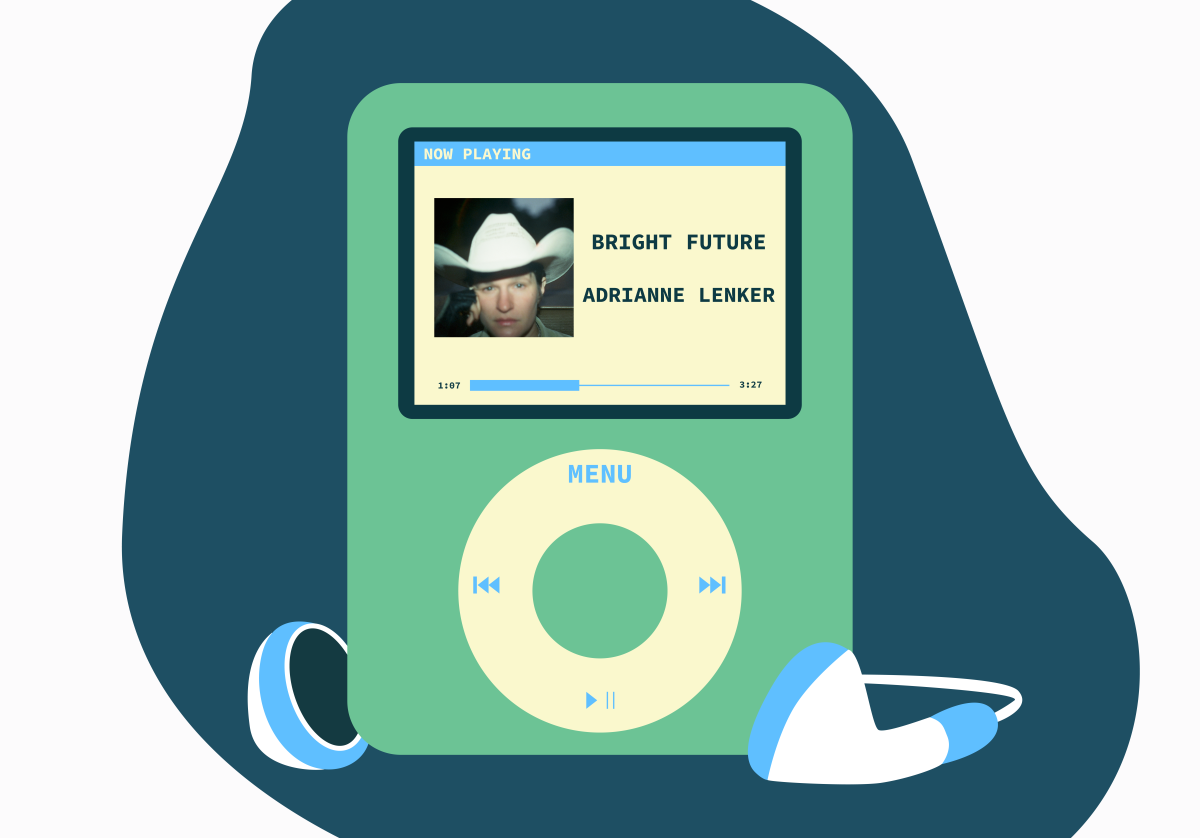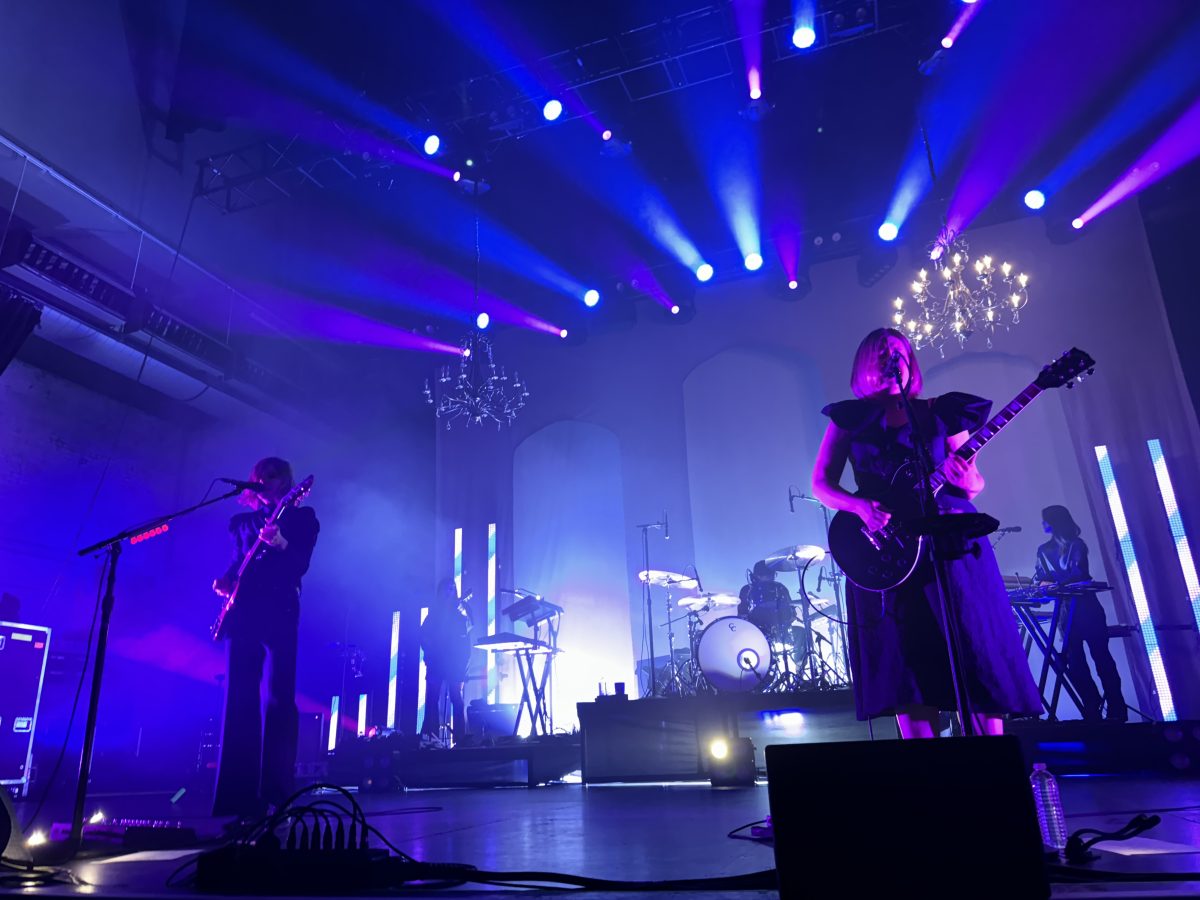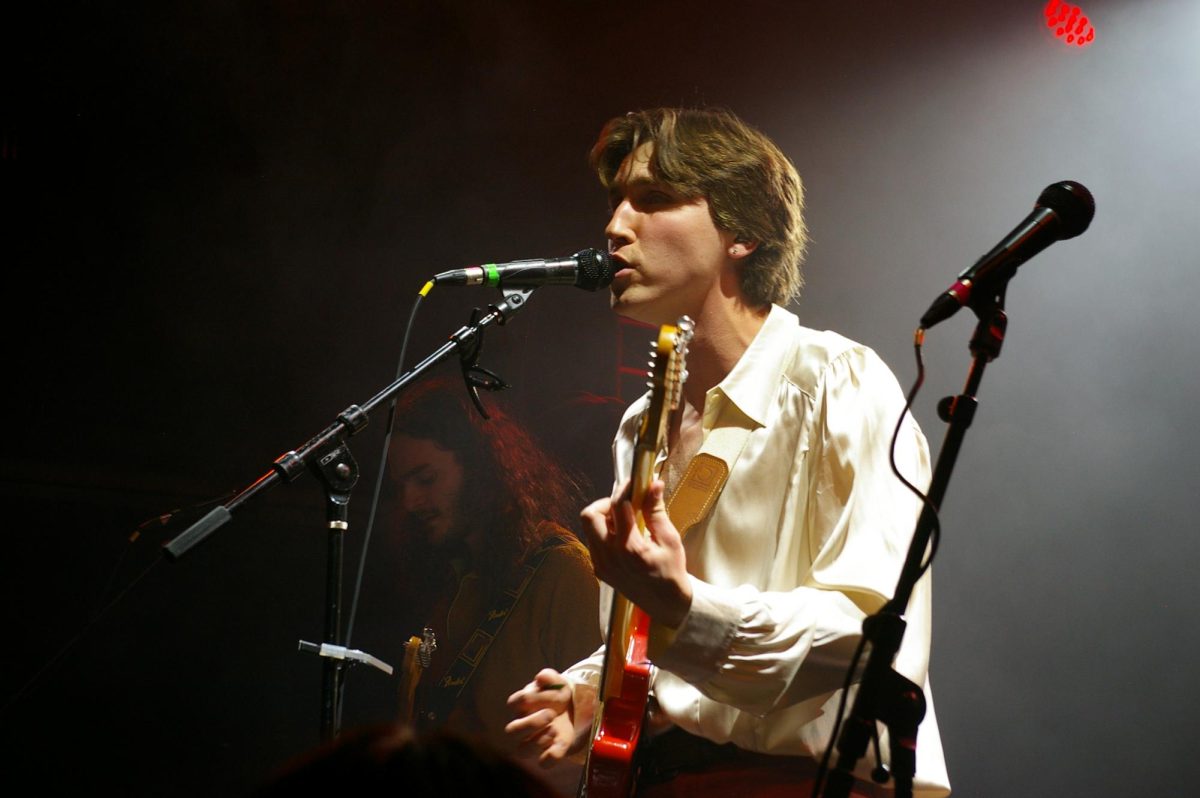Twenty studio albums into their career, the ever-evolving psychedelic rock band The Brian Jonestown Massacre have embarked on a massive North American tour and are set to headline the Varsity Theater on Saturday, Sept. 30.
Anton Newcombe, the band’s lead singer and primary songwriter, has been critically lauded along with his band as one of the world’s most influential modern psychedelic rock bands. Their biggest song on streaming platforms to date, the 1996 track “Anemone,” has even been acclaimed by the likes of the late Anthony Bourdain, who reportedly said it was his favorite song.
The Brian Jonestown Massacre released their 20th studio album this February, titled “The Future is Your Past.” The band’s current setlist features several songs from that album, as well as some of their most beloved songs dating back to the 1990s.
The Minnesota Daily spoke with Newcombe ahead of The Brian Jonestown Massacre’s Minneapolis performance.
Minnesota Daily: How has your guys’ North American tour been going so far?
Anton Newcombe: “Pretty good in a lot of ways, you know? I am really positive and thankful for the enthusiasm and it is great to be back.”
Daily: Would you say the enthusiasm is from the crowd, the band or both?
Newcombe: “Well, I think people are really … they’re tolerant of just anything. I mean, people are just in the mood to see the music and I don’t think they are hypercritical. That’s a good space for a band to be in, I think we have a diversified audience that is just there to enjoy the music. Which is good because, when we started out, you have to remember, we toured America and there was no point of reference for a lot of people to figure out what it was we were doing. People would go ‘look, you guys think you’re The Monkees’ or something. There was nothing for them to go by as a point of reference. I think now we’ve definitely found people that are interested in whatever it is that we’re presenting. That’s what you want.”
Daily: What is your guys’ process for curating a setlist? I know your guys’ setlists have a good amount of material from your last two records on it. What goes into making the decisions of what goes on the setlist?
Newcombe: “It’s impossible to please everybody. We actually toured the world once playing three-hour sets every night, and even in a three-hour set we couldn’t play something from every release. It would be impossible, there’s just not enough time. I know that some groups go out and go ‘this is our landmark album from such-and-such time, and here’s the encore with these extra songs,’ I never really wanted to be like that heritage, legacy act. So that’s why it’s focused on the last two records because the music was created to be heard in a live situation.”
Daily: You mentioned bands that have a “landmark record”, do you have a Brian Jonestown Massacre album in your mind that you are most proud of?
Newcombe: “It’s like all my bastard children, you know, I love them all. I see different things that are a strong point in the history, there is definitely a continuum where you can hear it even in other bands of the genre, you can now say ‘that’s where that came from’ is from what we were trying to do. You can see the influence in our project and other people, it’s undeniable. But I don’t know about a landmark thing. It’s really interesting, some of the songs are from the first practice, the first time we ever got together in a rehearsal space in San Francisco in 1990 or whatever, we wrote like six of the songs that come out on records in one day. So the songs go all the way back, some of them, and they’re not dated, it just sounds like our thing.
I could never sit down and write something specifically that I thought was going to get traction. Like I never sat down and said ‘oh, this is going to be a hit’ like Jack Antonoff or whoever the hell. I never set out to think about that. I did think ‘people are really going to freak out when they hear this,’ and it never really materialized instantly. However, the songs have this longevity and timelessness, they make their own space, that really has surprised me in a way that I haven’t seen with very many people and very many artists.
So, for instance, ‘Anemone’ has hundreds of millions of plays, lots of sales, it’s much bigger than a lot of ‘60s acts that are legends, it’s much bigger. To put it in perspective, The Doors sold 760,000 copies of ‘Light My Fire’ in the ‘60s, you know, that was a hit. I’ve passed that, right, but we just live in a different time. You see, The Doors didn’t become mega-mega until the ‘80s, then it became in the millions and the millions of record sales. But in the actual ‘60s, like when you see these things, Beatles singles that are legendary, that’s like 500,000 copies, I’ve passed all that shit a long time ago. But it’s just a perspective.
But anyways, I could have never known that ‘Anemone’ was gonna be hundreds of millions in streaming and all these different things, or like in f—ing 25 different TV shows a year or whatever, when I sat down and wrote it for my friend, because I was just writing it for her voice – Mara.”
Daily: Back to recent Brian Jonestown Massacre stuff, I think it’s pretty cool what you guys did with the last album, “The Future Is Your Past” with the album cover. I always appreciate it when modern artists take the idea of an album cover and flip it on its head in the streaming era. You did the coloring book thing with the vinyl, the cover is blank and it comes with a set of crayons, what was the inspiration behind that?
Newcombe: “I came from a time before f—ing indie music, where you could walk down the street with pink hair, when I dyed my hair red and all that shit, you would have these rednecks in trucks drive up onto the sidewalk and crash the car into a wall trying to kill you. Whether you were gay or into punk music, everybody was on the same team, goths, it didn’t matter, because it was us against the world. So music like AC/DC and post-’60s Pink Floyd and all the stuff on rock radio, those were the people that were trying to kill me.
However, when ‘In Through the Out Door’ [Led Zeppelin] came out they did have a slipcover that you put water on and all of a sudden it’s colorful, so I had remembered that that had happened. So it wasn’t necessarily that I ripped off that idea because it was slightly different, but I thought about the concept of being able to interact with it in its own way, and I couldn’t do it on the CD because of the size.
But it was funny because right when it came out someone decided that it was a gimmick, and I was like ‘no, it’s not a gimmick, did you listen to the music?’ It’s not a gimmick at all, because I’m not trying to even play the game remotely.”
Daily: I seem to remember you tweeting a while ago that you guys like to check out record stores on tour.
Newcombe: “Yep, every day.”
Daily: Do you have any favorite stores from the Minneapolis area?
Newcombe: “Minneapolis is very important to us. There was a record store, Let it Be, Electric Fetus. The community and the Sullivans at the 400 Bar, lots of people helped us out. There is one f—er in that town though, I will say that and leave it at that. But everybody else is golden. I love the city. Every time I’m going into the music shops in St. Paul and buying gear, like real important stuff to me, because our music is also about our tools to the extent that I own the gear, so if someone has to leave the band the sound stays exactly the same. It’s very important. When things are stolen, I can’t just go out and get a Jackson guitar and play the songs. Every element of it goes hand in hand. Last time we played First Avenue, I zipped across the bridge and went over and bought a Hammond B3 from a guy who’s just got a bananas warehouse filled of Hammond Organs, so we’re always digging.
But Minneapolis is one of our, I would say like, you know like a tent has pegs, there are certain communities that really have always been there for us. If you have a couple places in America that are so solid, your experience differs wildly from anybody else.”
Daily: What would you say fans can expect going into the show at the Varsity Theater on Saturday?
Newcombe: “When it’s clicking, it really is a spiritual experience. Like, when some of the songs are clicking, that’s what’s going through my mind. It’s really a spiritual experience. When I’m thinking about what’s being said and what the sounds are happening and all the chiming coming out it really has this, without being full of myself, it really is this angelic experience sometimes.
If you go to YouTube and you watch The Beatles’ song ‘Rain’ and you watch them playing, it really is one of the high points of garage-rock. It’s like, this is us just plugging in guitars to amps and these are the sounds we are making and it’s this crazy thing. In theory, anybody could do it, but The Beatles had to quit after 1966 because they couldn’t do it, and we’re just taking it beyond that. So that’s the amazing thing about it, you can do that, nothing is stopping you.”





